Speakers

Mian Umer Shafiq, Ph.D.
Engr. Ts. Dr. Mian Umer Shafiq is a PhD holder in Petroleum engineering from Curtin University Australia, and currently working as an Assistant Professor in Chemical and Petroleum Engineering Department at UCSI University. He earned the title of International Professional Engineer from Pakistan Engineering Council (PEC) and Professional Technologist Title from Malaysia Board of Technologist (MBOT). He is the research and MS program coordinator of the department. He also worked previously in Curtin University Malaysia as an Associate lecturer and at NFCIET Pakistan as an Assistant Professor. During his tenure at NFC IET Multan, he assigned the role of Head of Department. He is an active researcher and published more than 20 research publications including various journal papers and book chapters. His research interests include production optimization, Carbon Capture and Storage, Stimulation and Enhanced Oil Recovery. He also won few internal funding and currently supervising 2 PhD students.
Title of Speech: Surrogate-Assisted Evolutionary Optimization of CO2-ESGR and Storage
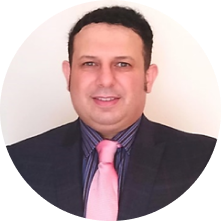
Hisham AbouGrad, Ph.D.
Dr. Hisham AbouGrad, DProf, MSc, MBA, PGCHEP, FHEA, CITP MBCS, PMP, ITQM, is a Senior Lecturer in Computer Science & Digital Technologies with a robust academic and research background. His expertise lies in artificial intelligence (AI), machine learning (ML), cybersecurity, financial technology (FinTech), multi-criteria decision making (MCDM), and information systems performance. Dr. AbouGrad actively collaborates with fellow researchers and supervise PhD and DProf students on projects that bridge theoretical knowledge with practical application. Particularly, he has supervised innovative projects such as the development of Contactless Payment Mobile Applications utilising QR Code and NFC Technologies, and predictive modeling systems for financial applications using ML. These projects provide invaluable hands-on experience, particularly in emerging technologies like mobile app development and financial performance prediction. Dr. AbouGrad’s research contributions are well-documented through his numerous publications, which address critical issues in ML, information security, and financial applications. His recent work, including a research paper "AI-Framework to Predict eCommerce Fake Reviews: A Hybrid Neural Network Machine Learning Model," showcases his ability to apply advanced AI methodologies to solve real-world financial and sustainability challenges by emphasising on quality, scalability, and reliability. His contributions not only advance academic knowledge but also have significant implications for sustainable business environment.
Title of Speech: Preventing Spam SMS Attacks Using Decision Making Mechanism and Machine Learning Algorithms
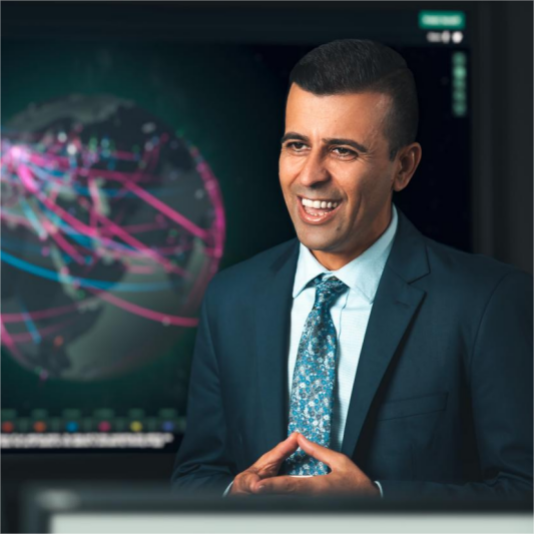
Marwan Omar, Ph.D.
Dr. Omar's Academic career has consistently focused on applied, industry-relevant cyber security, Data Analytics, machine learning, application of AI to cyber security and digital forensics research and education that delivers real-world results. He brings a unique combination of industry experience as well as teaching experience gained from teaching across different cultures and parts of the world. He has an established self-supporting program in machine learning application to cyber security. He has established a respectable research record in AI and cyber security exemplified in the dozens of published papers and book chapters that have gained recognition among researchers and practitioners (more than 272 Google scholar citations thus far). He is actively involved in graduate as well as undergraduate machine learning education including curriculum development and assessment.
Dr. Omar has recently published two books with Springer on Machine Learning and Cyber Security and has also published research with IEEE conference on Sematic Computing. Additionally, Dr. Omar holds numerous industry certifications including Comptia Sec+, ISACA CDPSE, EC-Council Certified Ethical Hacker, and SANS Advanced Smartphone Forensics Analyst.
Title of Speech: The Art and Science of Mobile Forensics
Previous Speakers

Marwan Omar, Ph.D.
Dr. Omar's Academic career has consistently focused on applied, industry-relevant cyber security, Data Analytics, machine learning, application of AI to cyber security and digital forensics research and education that delivers real-world results. He brings a unique combination of industry experience as well as teaching experience gained from teaching across different cultures and parts of the world. He has an established self-supporting program in machine learning application to cyber security. He has established a respectable research record in AI and cyber security exemplified in the dozens of published papers and book chapters that have gained recognition among researchers and practitioners (more than 272 Google scholar citations thus far). He is actively involved in graduate as well as undergraduate machine learning education including curriculum development and assessment. Dr. Omar has recently published two books with Springer on Machine Learning and Cyber Security and has also published research with IEEE conference on Sematic Computing. Additionally, Dr. Omar hold numerous industry certifications including Comptia Sec+, ISACA CDPSE, EC-Council Certified Ethical Hacker, and SANS Advanced Smartphone Forensics Analyst. Dr. Omar has been very active academia and the industry and he is currently serving as an associate professor of cyber security at Illinois Institute of Technology.
Title of Speech: Autonomous Vehicles:Navigating the legal and regulatory issues of a driverless world
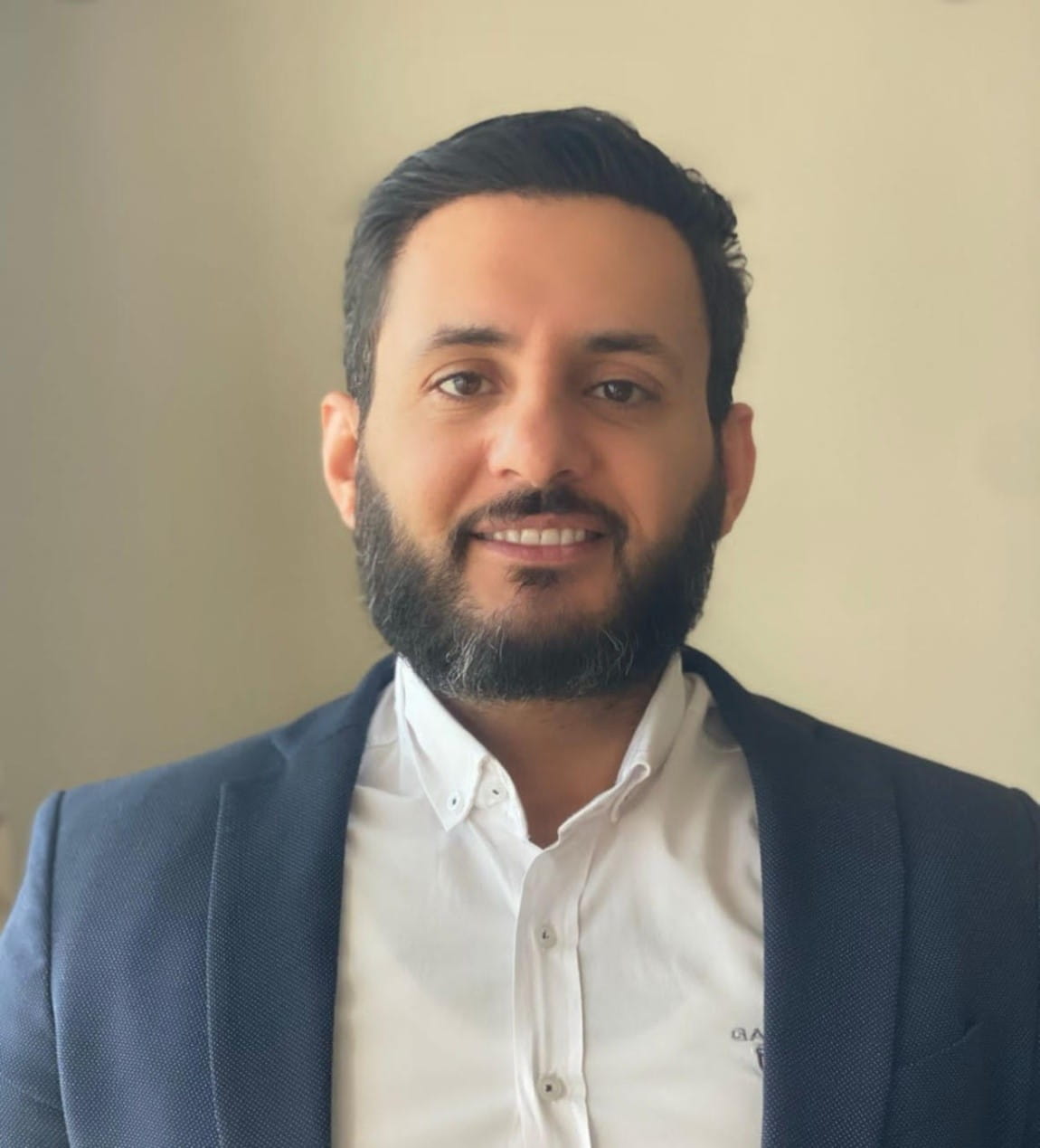
Yazeed Ghadi, Ph.D.
Dr. Yazeed Ghadi, Senior Member, IEEE, is a distinguished researcher and academic in the field of computer engineering and computer science. He earned his Ph.D. degree from Queensland University, where his groundbreaking research on developing hybrid plasmonic-photonic on-chip biochemical sensors earned him the prestigious Sigma Xi Best Ph.D. Thesis Award.
Currently serving as an Associate Professor of Computer Science at Al Ain University, Dr. Yazeed brings a wealth of expertise and experience to his role. Prior to joining Al Ain University, he worked as a Postdoctoral Researcher at The University of Queensland, further expanding his knowledge and contributing to cutting-edge research in his field.
Dr. Yazedd has an impressive publication record, with over 100+ peer-reviewed journals and conference papers to his credit. His research contributions extend beyond publications, as he holds three pending patents, showcasing his innovative thinking and commitment to advancing technology.
With a focus on developing novel electro-acoustic-optic neural interfaces for large-scale high-resolution electrophysiology and distributed optogenetic stimulation, Dr. Yazeed's current research interests align with the forefront of scientific exploration. His groundbreaking work has earned him recognition through various awards, underscoring his exceptional contributions to the field of electrical and computer engineering.
In summary, Dr. Yazeed is an esteemed professional who has made significant contributions to academia and research. His dedication, expertise, and commitment to advancing knowledge make him a valuable asset in the field of electrical and computer engineering.

Dr. Xinqing Xiao
Xinqing Xiao an Associate Professor at College of Engineering, China Agricultural University, China. He is also the new young star of the "Talent Cultivation and Development Support Program" of China Agricultural University, and the outstanding graduates of Beijing/China Agricultural University. His main research focuses on smart sensing technologies, which includes the battery-free/self-powered/self-driven smart sensing, flexible smart sensing, smart sensing decision control technologies, etc. He has presided over national, provincial and ministerial projects. He has published more than 60 academic papers at home and abroad as the first or corresponding author, obtained more than 20 national invention patents, and provincial and ministerial science and technology awards, social force science and technology awards.
Title of Speech: Battery-free wireless sensing for food monitoring
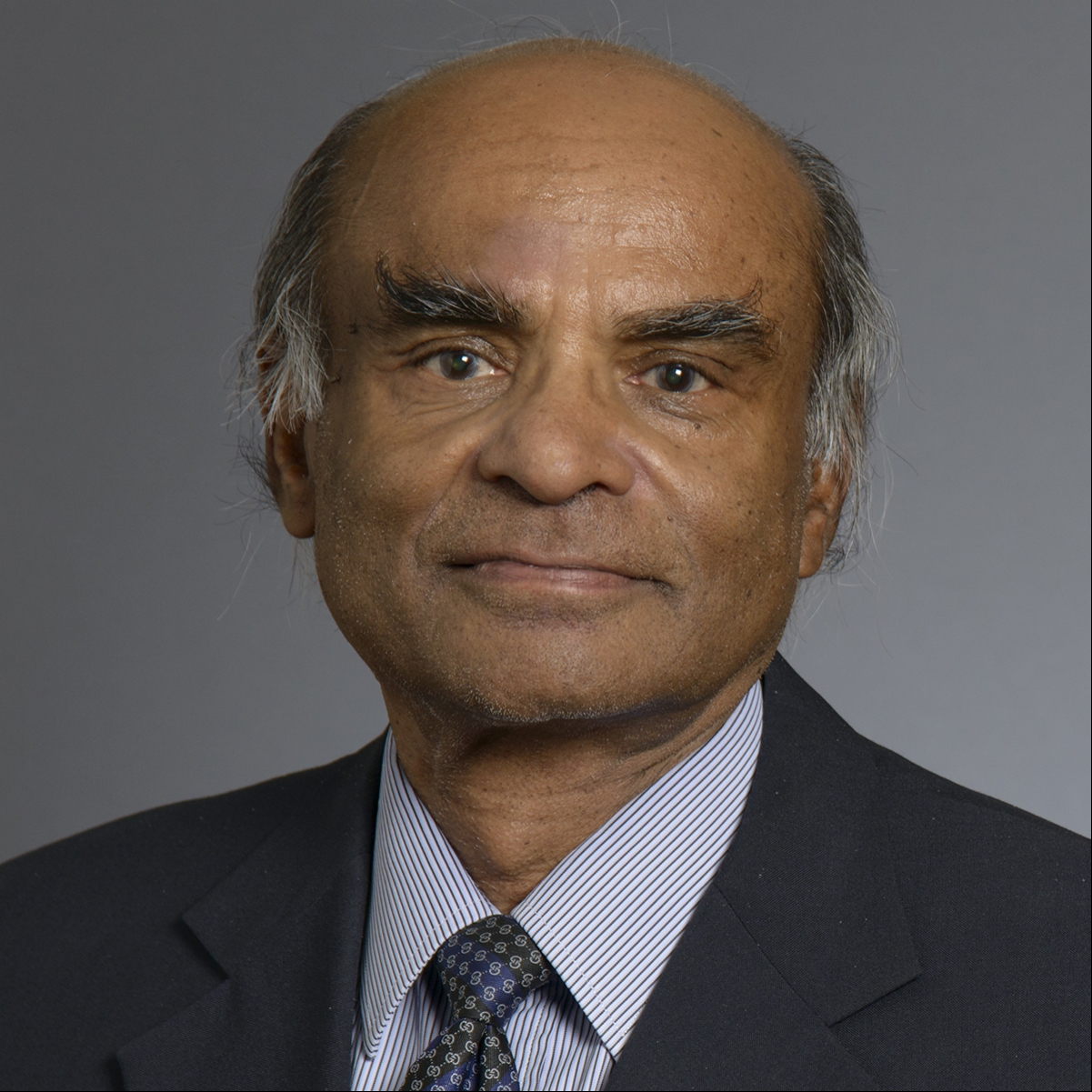
Achintya Haldar, Ph.D.
Dr. Achintya Haldar is active in the related areas of this presentation for over four decades and has published extensively. He taught at Illinois Institute of Technology, Georgia Institute of Technology, and now at the University of Arizona. He was a Guest Professor at the University of Tokyo, Visiting Professor at the IISc -Bangalore, IIT - Kanpur, Hong Kong University of Science & Technology, Technical University of Ostrava, Czech Republic, Honorary Distinguished Visiting Professor at BESU. He also worked Engineers India Ltd, New Delhi and Bechtel Power Corp, Los Angeles. Dr. Haldar has published over 640 technical articles (Google Scholar), including 12 books (edited included), and 38 book chapters. Dr. Haldar is a Distinguished Member of ASCE and a Fellow of SEI. He also received Lifetime Achievement Award from the Society for Reliability and Safety and an Honorable Diploma from the Czech Society for Mechanics. He received the highest teaching award from the University of Arizona and inducted in to Teaching Excellence Award Wall, Georgia Tech. He received many research awards including from President Reagan, ASCE's Huber Civil Engineering Research prize, and John C. Park Outstanding Civil Engineer Award. He received Excellence in Research Journal Award, IGI Global; Certificate of Recognition from Universidad de Cartagena, Colombia; Polis University, Albania; EuroSciCon, France; Euro Congress, London; Certificate of Appreciation, Taishan Academic Forum on Structural Safety and Reliability Assessment, China; and Honorable Recognition Award from ASME.
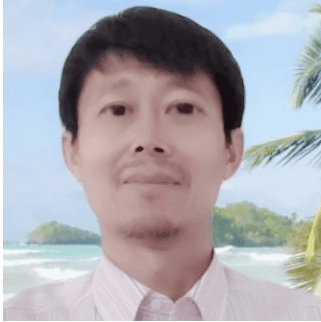
Alan Wang, Ph.D.
Alan Wang is a principal investigator and Associate Professor at University of Auckland. He has more than ten years of research experience in bioengineering informatics and integrated medicine, especially in advancing the role of medical informatics in health care. His research interests include bioengineering, signal processing, data informatics, machine learning, and biomedical statistics and simulation. He has developed advanced data analytics methods for intelligent health and personalized diagnosis and prognosis based on signal processing and machine learning theories. He has experience analyzing huge cohorts of data with applications of early diagnosis, disease understanding, and effective treatment of patients with different disorders. He serves as an Editorial Board Member and an Active Reviewer for several international journals.
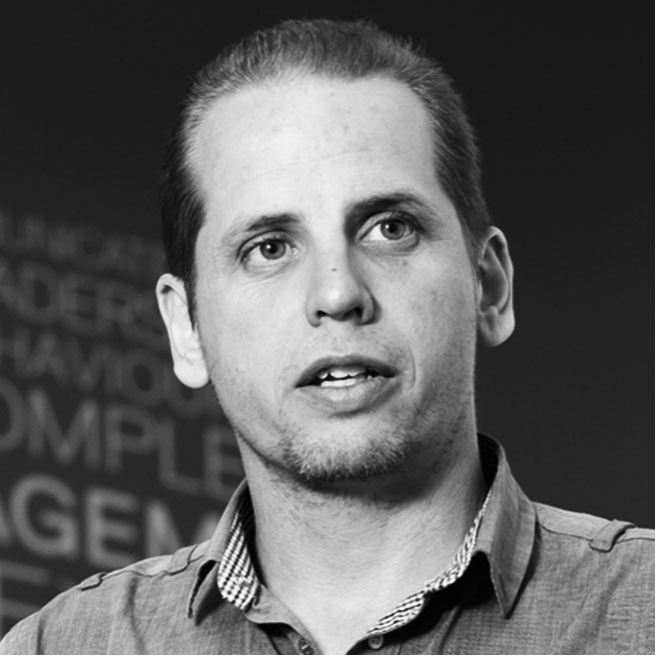
Michael Harre, Ph.D.
Dr. Harre's research combines the psychology of decision theory with artificial intelligence to understand complex social dynamics. Currently he's working on how to replicate a 'theory of mind' for AI and how AI communities co-create knowledge and can cooperate with humans. More generally Dr. Harre is interested in the psychology of AI: how can we use what we know of the mesoscopic scale of human cognition to advance our understanding of machine intelligence, i.e. beyond what is being done at the micro-scale of modelling neurons. He also has extensive experience in agent based modelling, economics, big data analytics, and game non-linear dynamics.
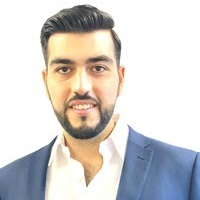
Seyed Ghaffar, Ph.D.
Dr. Seyed Ghaffar is a Chartered Civil Engineer (CEng, MICE), a Member of the Institute of Concrete Technology (MICT) and a Fellow of the Higher Education Academy (FHEA). He is the leader of Additive Manufacturing Technology in Construction Research Group (AMTC). The focus of AMTC is on valorising construction and demolition waste using materials science and 3D printing to achieve the circular economy goals of sustainable construction. Dr. Ghaffar's research covers a number of construction materials, with a focus on the development of low-carbon technologies suitable for new and retrofitting applications by combining materials sciences and innovative technologies. He has been the PI or Co-I of ~£6M on 8 grants from EPSRC, British Council, and the EU H2020. Two projects worth noting are: "Direct Writing of Cementitious Inks to Scaffolds with Complex Microarchitectures (DiWoCIS) "and "Digital fabrication and integration of Material reuse for environmentally friendly cementitious composite building blocks (DigiMat)". Dr. Ghaffar is the Executive Editor of the Journal of Results in Engineering (Elsevier). He recently edited a book titled "Innovation in construction - A Practical Guide to Transforming the Construction Industry".